MILES MOSLEY Interview: “You got to grind it out, and make sure you practice the stuff you're bad at"
- Details
- Category: Interviews
- Published on Wednesday, 23 August 2017 22:18
- Written by Richman

On 3 July, GuitarMania met with vocalist, upright bassist, and composer MILES MOSLEY for an interview in the margins of his show at the Vienna Jazz Festival. Born in 1980 and named after the famous MILES DAVIS, Miles is a founding member of the acclaimed west coast musical collective called the “West Coast Get Down” - a collaborative group of musicians born and raised in Los Angeles. We wanted to learn more about his new solo-album “Uprising”, his work with the amazing KAMASI WASHINGTON, and practice routines.
New York has long been the epicenter of modern Jazz, but a new generation of musicians has breathed new life into the Los Angeles Jazz scene recently. Hailed as the JIMI HENDRIX of bass playing, MILES MOSLEY has played on KAMASI WASHINGTON’s “The Epic” and KENDRICK LAMAR’s “To Pimp a Butterfly“ landmark albums, to name just a selected few. He has just released an acclaimed new solo album to raving reviews by the title of “Uprising”. We used the occasion of Miles’s concert at the Jazzfest Wien in July to talk about his new album and formative years.
Welcome back! Great to see you in Vienna again, Miles.
Hey, thanks for taking the time, brother. I really appreciate it.
We understand you played last year with Kamasi Washington at the Ottakringer Brewery in Vienna? And now back in Austria with your new album “Uprising”. How exciting is that?
It's very exciting. I love touring. And I'm so excited that the album is reaching people around the world and that we're having such a wonderful and warm response to it all throughout Europe. And, you know, the last time we played here, we had this heartfelt reception in playing that really cool building. And I think that was the second year of touring with Kamasi. So we're on year one and we're coming and, you know, playing music to the people and we're putting on a really action packed show. I think we're sold out tonight.
Can you please tell us about the albums title – why “Uprising”?
It's an album that deals with a lot of common human emotions. It deals with lot of things that wear us down and make us feel heavy and uncertain about ourselves. And this album is meant to lift you up, or at least make you know that there is somebody who has gone through that, who questions themselves and has dealt with these things and put them into a song. And I think music is good for that. It can come visit you at your lowest point and it can lift you up to someplace higher. And so through that, you know, that is my uprising.
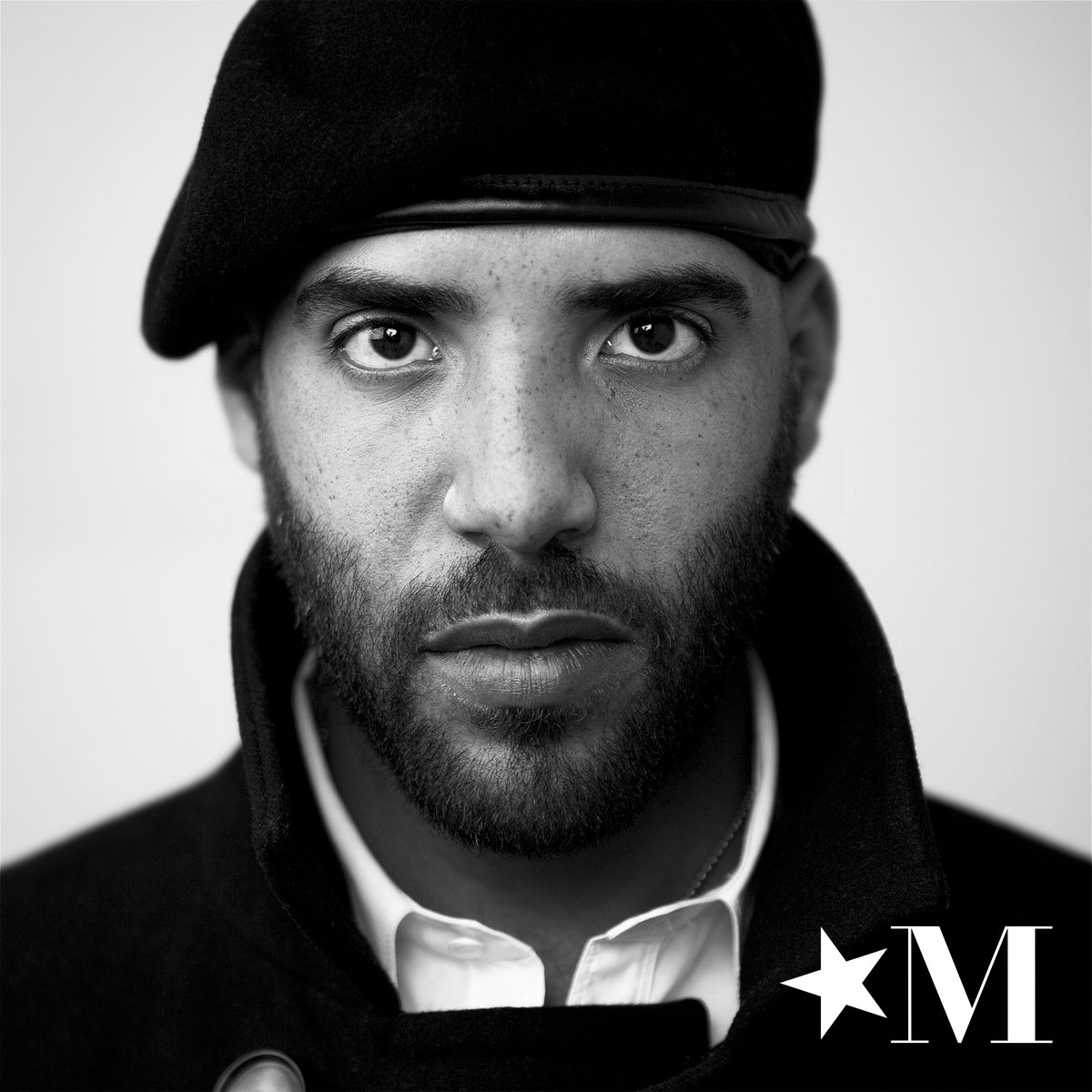
How did you approach the writing, the compositions for the new album?
I can get to songs a couple of different ways. A lot of times I'll have a melody or I'll have a lyric. I knew I wanted to write a song that started off “You Can Call Me Abraham”, but I had no idea what it sounded like. So I just kept that in the back of my mind. And when I'm -- you know, playing during a solo or we get somewhere creative, I'll just try that line out inside that groove and if it works, great. Other times I'll sit down at a piano and just try to find some things in chords that I like and the bass and try to find a groove. At the end of the day, I check all the songs in the holy trinity. So the song has to sound good on guitar, piano and bass.
An interesting approach, indeed.
And if I do that, each instrument stresses out a different part of the song. It's like if you play a song on bass, you're stressing out the melody because there is no chord structure that could help you. This really helps you to find out how strong your melody is. On the other hand, if you play a song on guitar, there is no width and density really. A piano, however, can hype up a song to feel like it's really big, whereas an acoustic guitar specifically cannot do that. So it's really testing your chords and making sure that these are all really solid movements in melody. And playing on the piano is kind of letting you know what the song can be production-wise. It's a glimpse into what kind of production you can get out of it because you can test a lot of different things on piano.
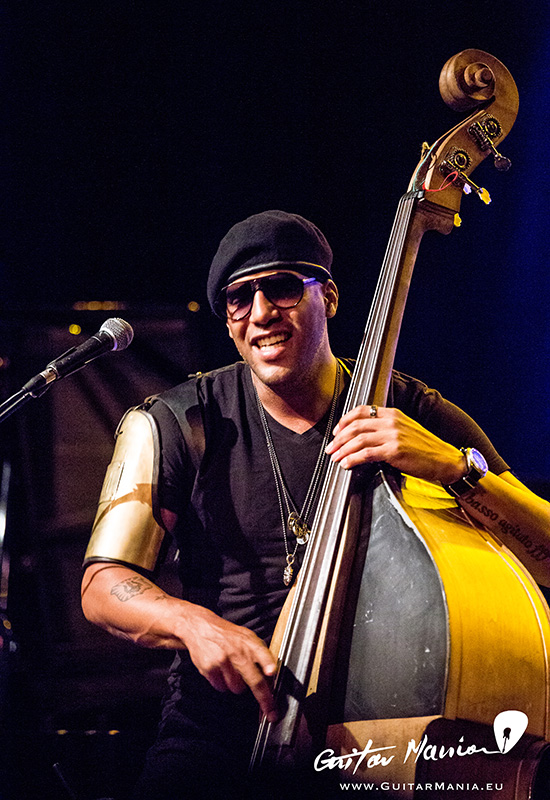
By the time you get into the studio, do the musicians already know what they will be playing on the record?
I trust everybody I play with. I think sometimes they have an idea, but most of the times we just play until we feel like it make sense. The song “Uprising” is a little bit different because we had ran through those songs at a number of performances, so everybody kind of knew what they were up to. But when we start from scratch, we're so comfortable stretching and taking chances with the music that we don’t have to really talk about what the part is supposed to be.
Fantastic.
Yes, it's pretty cool.
I think it’s pretty cool if you have musicians like that who know each other so well and know what the other wants to play.
Yeah. Like, when Kamasi writes a baseline for one of his songs, it's like the first four bars of basically what he wants and then we adapt it.
And then it's open up for --
It's all …
… interpretation. (short pause) Do you notate your parts for the other musicians?
Oh yes, I really write everything out and turn it into charts. In spite then we play through it a couple of times. And you kind of know what it's supposed to be. You can tell if something is missing, if the energy is not right, the groove is not right. And there are different production values because Tony (Austin) is such a great producer. Tony is not only the drummer for my band, but he's a phenomenal engineer.
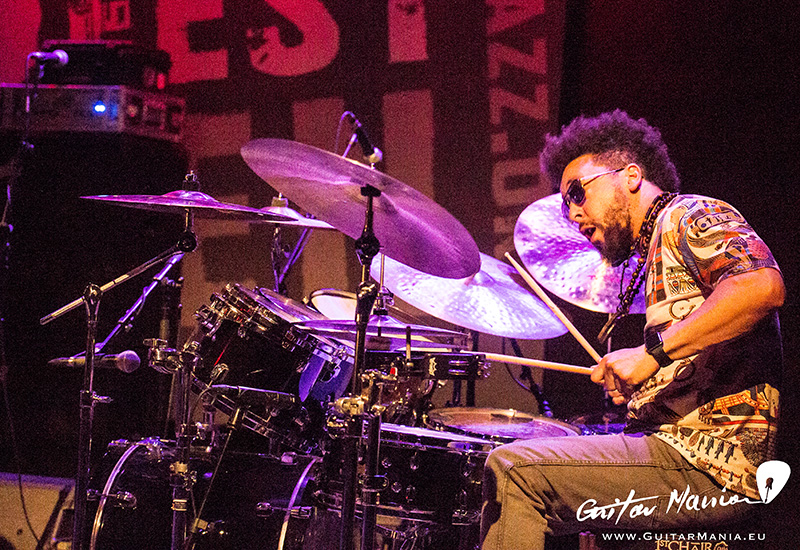
Caption: Drummer Tony Austin at the Porgy & Bess, Vienna. July 2017.
Do the songs change a lot from the way they have been recorded and the way they're being performed live?
Yes, they go somewhere else. Not so much that you wouldn’t recognize them because I think it's really important for people to love a song and go out and hear the song and not hear it being completely dismantled. But once we get into the solo section, it's all hands, you know, you can go anywhere, it doesn’t matter. But the song is usually the same, yeah.
Barbara (Sealy; Miles’s Manager) told us that you had a great time and played a fantastic show with the collective last night.
Oh, it was great. It really is. There are now 14 of us on the road right now that have all grown up together. And to run into each other at festivals and, hangout and share the street gift of music with people and recognize the opportunity we have right now to make it, it's a really special time for us. You know, to be in the festivals and hangout and play in front of all these people, it's awesome.

How does it feel like being part of this whole movement, a new generation of musicians entering the scene?
It feels like an honor and it feels like we, you know, we got a little lucky and we put a lot of hard work and energy into our instruments in sticking together and making music that we believed in and not making music that other people told us to make. And so it's our turn and we take it seriously. And we want to make sure that we put out a lot of records and reach a lot of people, and continue to keep a really high standard of music delivered to our fans. And yeah, it does feel like there has been finally a torch pass to a new generation of musicians and I'm happy to be a part of this.
You're such an accomplished musician, but does MILES MOSLEY still practice?
I do. I just don’t practice in the same routine that I used to. Growing up I practiced every single day, eight hours a day for, whatever, 20 years.
Twenty years, eight hours a day?
Oh yes, for sure. I mean, as regards the upright bass, just nothing is in the same place. There are so many things to tackle. There are so many different positions to accomplish and connect with. Now that I tour so heavily, I will practice for each project. If I'm working on a film score that's going to have a lot of fourth position stuff written in it, I'll practice in fourth position and get that solid. If I'm designing a new sound and I have a cool pedal and it sounds good with lots of harmonic playing, I'll sit and remind myself about all the different harmonic choices I have. So my practicing really comes from project to project now.
How would an 8-hour day look like when you first started practicing?
You break it up. You know, it's not necessary to every single day scales, for instance. The best way to train it all is sometimes to work on things you are absolutely horrible at. Sometimes you're practicing to enjoy the natural reaction you have on your instrument, right, so you're playing music, you don’t suck at it, you just like it, you like everything you're hearing and you're just playing, you know, that there is a practicing to that.
Then the next is sort of the practical application of all that stuff. So I would say that you start off with just the fundamentals. I would do scales, scales, scales, scales, scales, scales for two, three hours and then stop, put that away. Or practice on whatever your teacher is giving you at that time. And you can put a little harmonic study in that type of scales you're playing as well.
Then the next block would be sort of the more fun side of things, which is transcribing and playing along with things you've transcribed already. So that can be an intensive block because you can do, you know, an hour or two of listening to your favorite (records). For me, this would be a Ray Brown record and writing out all the notes. And then I would play the things I've transcribed before and all those awesome solos. Then I would play with the record and enjoy it in that way because you're studying and you're learning, plus you're also taking the time to improve your hearing.
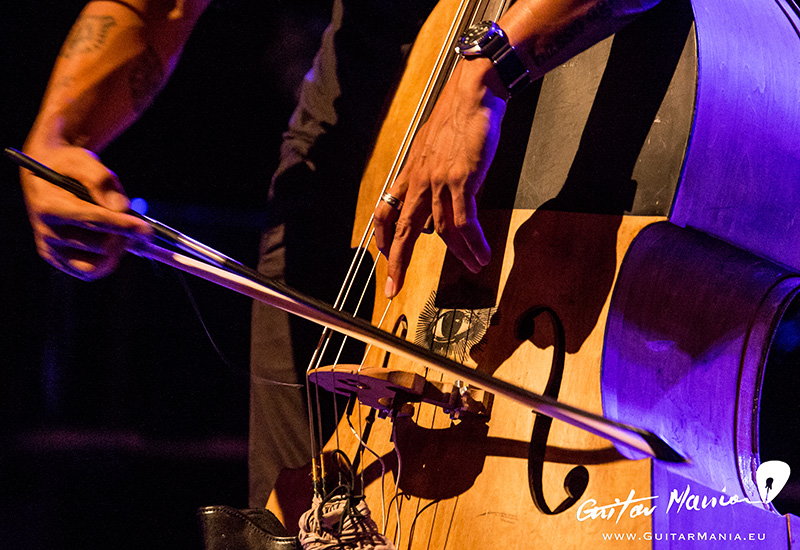
And then at the end is figuring out the practical application of all that stuff, which could be playing for tunes, or playing your own solo over the song you just sort of figured out, or playing scales, you know, with some groove to it. But at the end of the day, the simplest thing I would say to somebody is that you have to make sure you practice the stuff you're bad at. And I know it sounds like, well, of course, you do that, but like, you don’t because it's so depressing.
It sucks so bad to sit there and just sound horrible, which is why a lot of bass players don’t gravitate towards the bow. Nothing sounds worse than the bow on the upright bass when you don't know what you're doing. But you got to grind it out, you have to play the stuff you suck at and just face the music. Go get up beat up by your instrument, because if you don’t do that, then you're always playing that second batch, which is kind of fun, but you're not growing, you're just congratulating yourself for learning whatever you learned to that point.
And you are a piano player as well?
Enough to compose.
Would you say it's important to know a second instrument as a bass player?
Absolutely, yes. Well, everybody has to know piano, everybody. You don’t have to be able to play Chopin or anything like that. But you should be able to, let’s say when I say, play a G Minor chord, no problem. Everybody has to play the piano. It's the foundation of Western music.
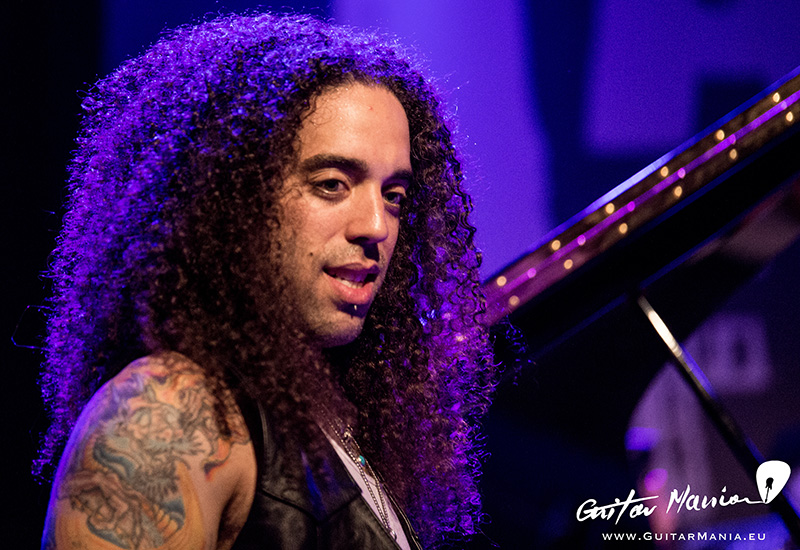
Caption: Pianist Cameron Graves at the Porgy & Bess in Vienna. Cameron released his own solo record "Planetary Prince" in February 2017.
And piano is far more logic in its layout, than say the guitar to understand the harmonics and everything …
It is the only thing you can translate with anybody. You can all gather around a piano and figure something out. And for bass players even more so, because you can look and see what the chord is. If you're having trouble, you can look at their hands and go, ah, I see. There is a F sharp in there, okay, so that's what's going on here, if you can't hear it for some reason, for instance.
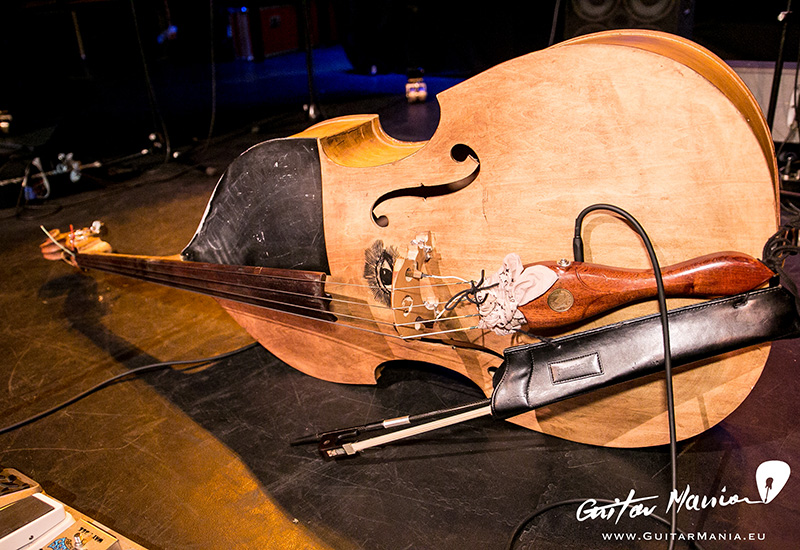
Please tell us why you ended up playing the upright bass? What fascinates you most about the instrument?
Bass has the most powerful frequency. We win every time. If the band is playing C major chord and I play A, it's A minor and there is nobody that can do anything about it, nope, it's an A minor chord, I will win, I'm king of the hill. What I love about the upright bass is how many different sounds it can make. You pull the bow out, plus pits, plus effects, and it can sound like anything from a moog synthesizer to, you know, ...
The Bass can do this whole range of natural and sexy to 10,000 thunder jet planes trying to rip your skull off, you know. It's the most versatile instrument sonically that I can think of, you know, for myself for sure. But that's not how I got to it (laughs). I got to it just because I was lazy and I wanted to play an instrument I hadn’t to take home. In my school, all the kids took home the violin, the cello. The bass, it stayed in the corner because it was too big. So I picked the bass so that I wouldn’t have to take it anywhere. And now I have to take it everywhere (laughs).
Of all the people that you've played with - and you've played with so many and, you know, I assume those people have also been very important teachers in your life? Is there a particular person or a particular lesson that you could single out?
Yeah, I'll give you the lesson that Al McKibbon (1919 –2005; American jazz double bassist, known for his work in Bop, Hard Bop, and Latin) gave me, which was really impactful for me. Al McKibbon, when I first met him, he saw that I was on public access television winning an award for a competition that I have won in high school. And so he called me up or called the station, somehow he got in contact with me. He says, hey man, I want you to come by my house, I'm going to give you free lesson. And me, as a young student, of course, I'll be there. So I show up and Al McKibbon has arguably one of the - God rest his soul - one of the most amazing upright basses in history. Sonically, texturally, physically, it's just the most beautiful bass ever made as far as I'm concerned, and a lot of other people, too.

So it was in the corner and he said, pick up the bass and he said, play me something. All right, so I picked it up and played some Ray Brown groove. He was like, cool, play me something. Okay, so I played faster and harder and louder. And he was like , yeah, yeah, man, play me something. I was like, what is this dude talking about. So I'm losing my mind, trying to play everything I've ever known. And he goes, do you play with the bow? And I said, yeah. He said, play me something. So I picked up and I played. He said, cool, I just want to make sure you knew how to play something.
And his point was that you can't admonish or deny a style of music or technique that you yourself don't know how to play. So a fool would say, oh, I don’t use the bow because I don’t like it. But you don't know how to use it, so how can you say you don’t like it. Or a fool would say, I don’t play Country music because I don’t like Country music. But you don’t understand Country music. If you understood Country music, what it takes to write Country music baseline, you might -- if you have a full understanding of the music, you might appreciate it and it would at least make you a better musician in the process of learning lots of different styles.
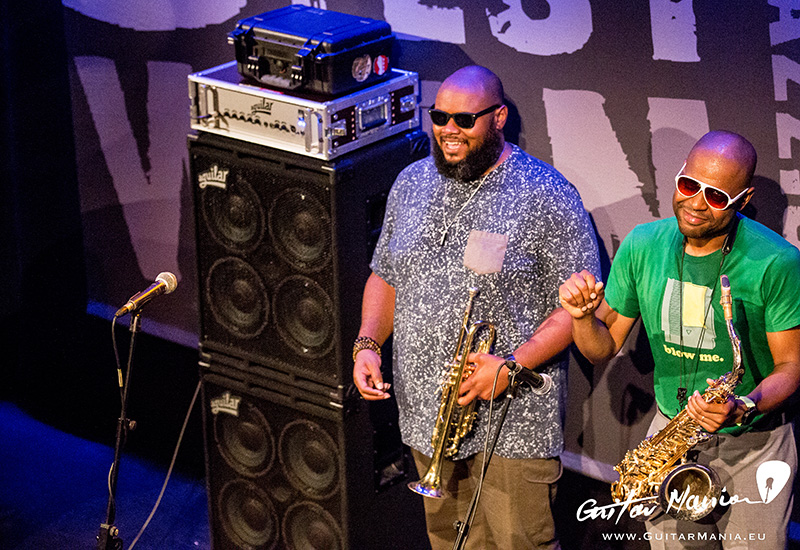
Caption: What a fantastic horn section: Chris Gray (trumpet) and Howard Wiley (saxophone) at the Porgy & Bess, Vienna. July 2017.
So, if someone came to me and said, can you play bass in this -- in a Polka band, yeah, I can because I've studied it and I've listened to it. And if I didn’t know it and said, no, I don’t really like Polka, it's absurd because think about how rich that culture is, how much music has been made under the genre of Polka and the difference between all the rhythms that come out of the accordion and all the melodies. That's the most important lesson he ever gave to me because it took my blinders off. And I never listened to anything and go, that's bad or that's stupid or that sucks or I don’t like it. You have to know it. You have to know why and you have to be able to play it.
I like looking at music like that. It has opened my horizons and has allowed me to befriend a lot of people that I wouldn’t have probably befriended if I wasn’t open to it. And it is also new styles of music that you think don’t matter, but then it gets inside your music and makes it great.
Miles, thank you, much appreciated. Looking forward to tonight’s show.
Thank you. I appreciate your time.
Please also check out our video interview where Miles runs us through the signal chain of his pedal board below:
Miles Mosley is a UMG/Verve Label Group artist. For more information on Miles, please see www.milesmosley.com
Thanks go to Jürgen Rottensteiner & Uli Zeisel of the Jazzfest Wien, the Porgy & Bess Club in Vienna, as well as Barbara Sealy for their help.
If you liked this interview, please make sure to like us on Facebook, Twitter and don't forget to subscribe to our YouTube Channel. Thanks!
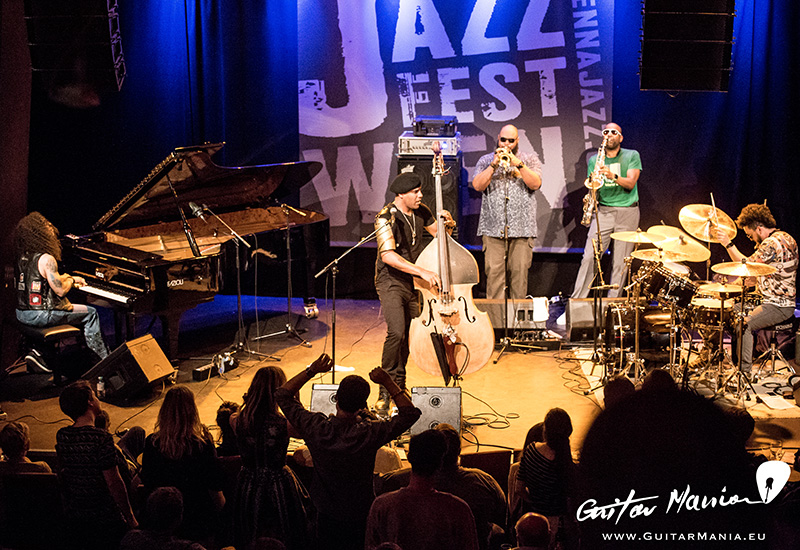
Transcription by Herm. All images by Richman.




